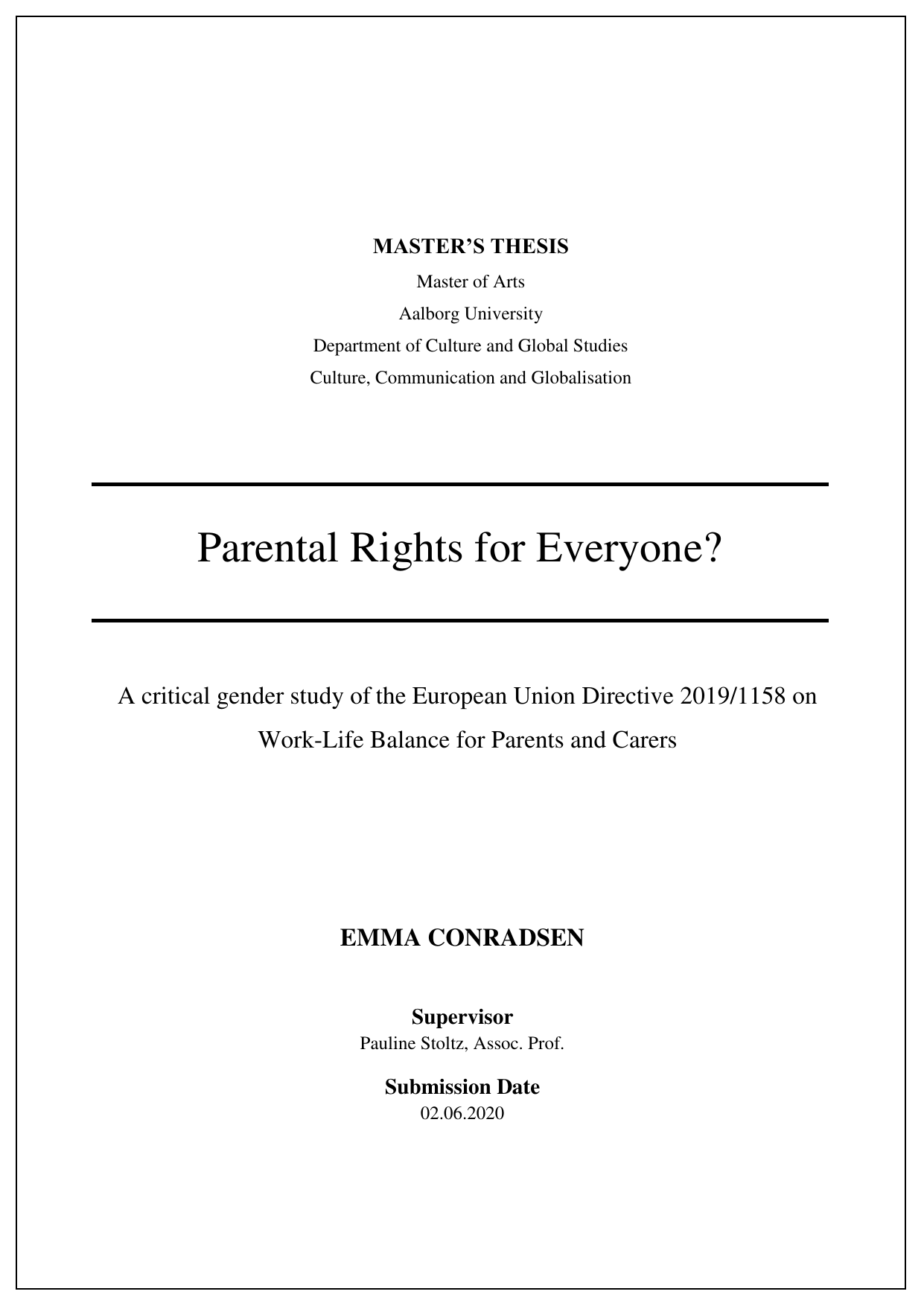
Parental Rights for Everyone?: A critical gender study of the European Union Directive 2019/1158 on Work-Life Balance for Parents and Carers.
Translated title
Author
Term
4. term
Publication year
2002
Submitted on
2020-06-01
Pages
73
Abstract
Over the last decade, work-life balance has become an interest in terms of policies attempting to enhance gender equality by reconciling professional life and family life. The purpose of work-life balance policies is for women and men to share equal responsibilities concerning childcare obligations. The goal is to question and in the end eliminate dominant gender stereotypes by the means of sharing care responsibilities equally between women and men. Hence, empowering women in regards to employment helps reduce the current gender gaps prevailing in earnings and pay. This study aims to contribute to this scholarship by examining the newest attempt from the European Union to reconcile work life and family life: The European Union Directive 2019/1158 on Work-Life Balance for Parents and Carers. By the means of Carol Bacchi’s ‘what is the problem represented to be?’ approach as an analytical tool, I examine the European Union’s implementation of gender equality policies in regards to work-life balance initiatives, and I examine the impact it has on Denmark and Italy as Member States of the European Union. The study focuses on the European Union Directive 2019/1158 as a legal act with initiatives that intent to promote the participation of women in the labour market and thus, achieve gender-equal distribution of labour market opportunities and caring responsibilities (The European Parliament and the Council of the European Union 2019, 79). My study examines if the initiatives of the Directive contribute to a more even division of parental rights, and if it does so unproblematic. I study the cultural values embedded in the European Union Directive 2019/1158 and compare them to the domestic context of the Member States Denmark and Italy in order to find out if their cultural factors harmonise. The study concludes that cultural factors, which defines what a family is and what role women have in the society, are possible hindrances for the European Union Directive 2019/1158 success. Consequently, the study evaluates potential solutions in terms of overcoming the latter hindrances. One possible outcome is if the European Union in the Directive defines the term ‘family’ and in addition, presents certain criteria, which parents must fulfil in order to be eligible for parental rights. The second possible outcome focuses on financial disparities and it proposes how equal pay for equal work of equal value might be a way in which the Directive 2019/1158 can achieve its goals.
Keywords
Europa-Parlamentets og Rådets direktiv (EU) 2019/1158 af 20. juni 2019 om balance mellem arbejdsliv og privatliv for forældre og omsorgspersoner og om ophævelse af Rådets direktiv 2010/18/EU ; European Union ; Gender Equality ; Work-Life Balance ; Parental Rights ; Carol Bacchi ; WPR approach ; ciritcal gender study ; Directive (EU) 2019/1158 ; gender ; equality ; parental leave ; women's employment ; men's right to parental leave ; reconciling work life and family life
Documents
